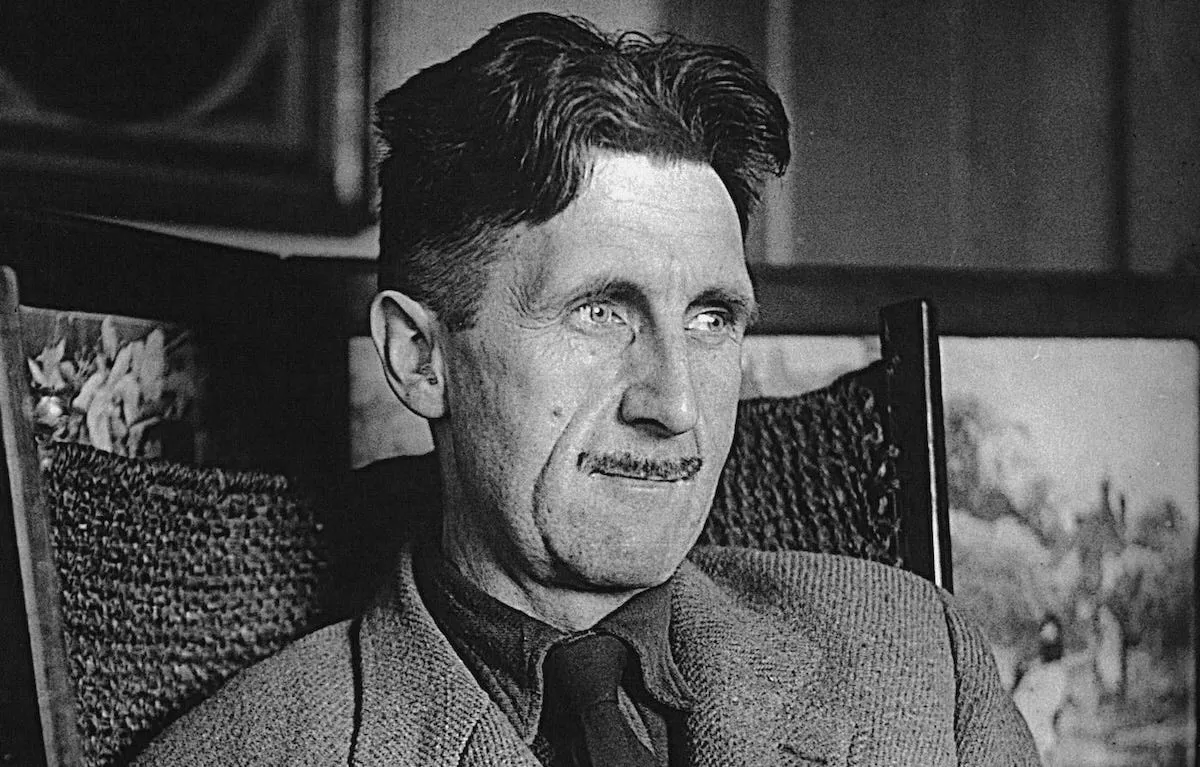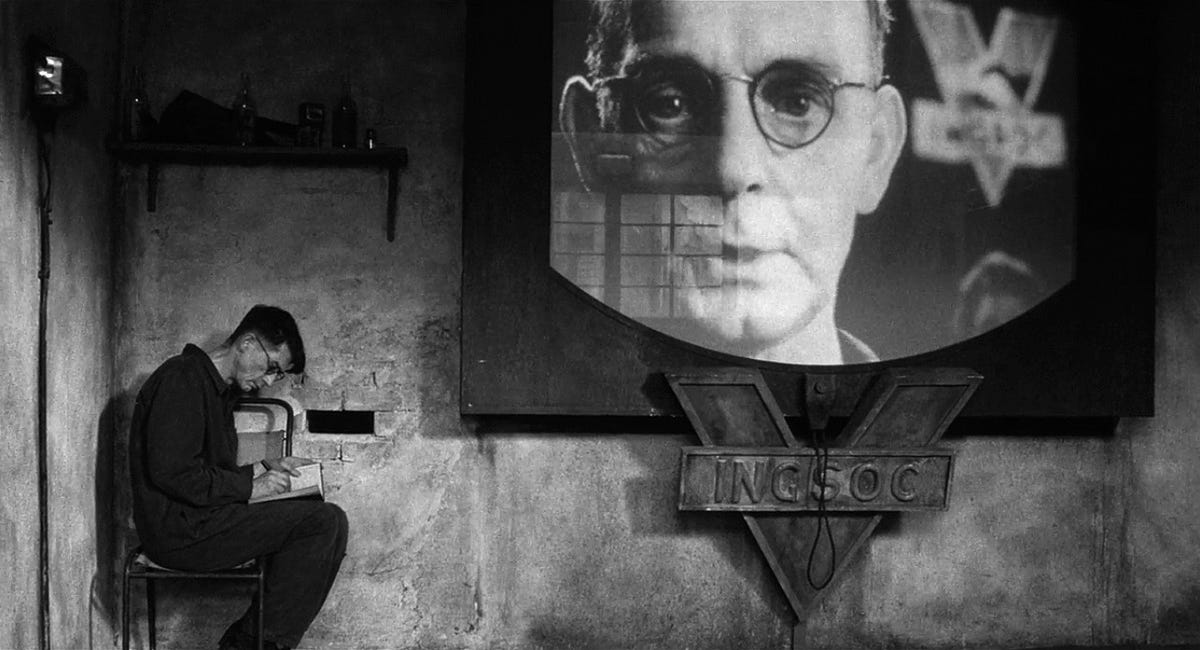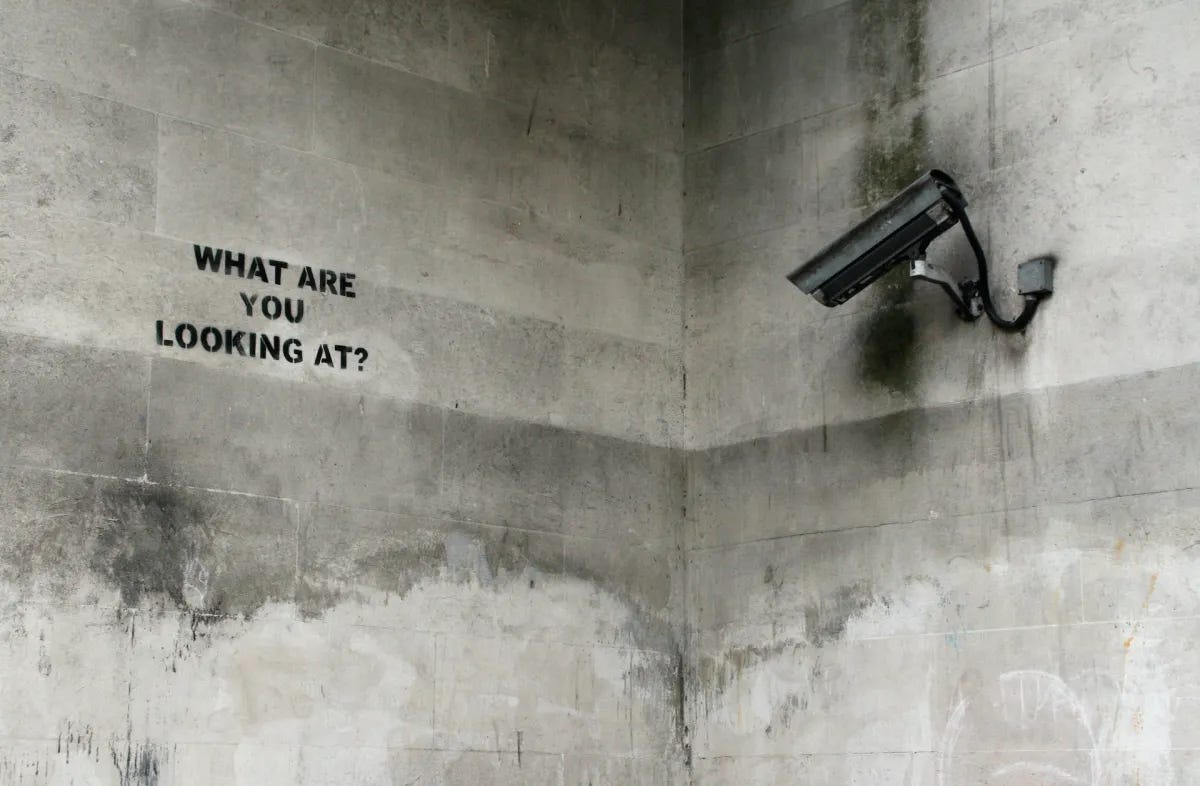Now, when I watch the “news” in the evening, especially during the recent US election season, I was struck by how much obvious propaganda I was exposed to.
The presidential race was “covered” every night with predictions and polls with very little serious insight into the actual intentions of the candidates, their programs or their backgrounds.
Coverage of the war in the Middle East is also starkly reminiscent of Orwell’s daily hate sessions, through the “telescreen” where citizens train their anger on foreign “enemies” – which seem to change regularly with one foreign country being friendly until it becomes the focus of hatred soon thereafter.
There is also plenty of what Orwell called “Newspeak” – the use of language that actually obscures the truth and meaning of what is being discussed. In fact, protagonist Winston’s job at the Ministry of Truth involves the very destruction of language and memory.
The current media assiduously avoids words that could promote dissent, which reminds me of how long the media often takes to acknowledge that politicians lie flagrantly, using words like misunderstanding or misrepresentation.
Other euphemisms disguise the actual experiences of those mentioned; “senior citizens” is one of my favorites for old people. There are many others, including “collateral damage,” “correctional facility” and “food insecure,” which I find particularly offensive.
But to me, the most obvious example of Newspeak is the 24-hour “cable news” format that recycles the same videos with a slightly modified message by each “newscaster” whenever they are shown, and the roundtable “discussions” by “experts” which are most often characterized by binary thinking and little nuance – and generally involve more personal commentary than actual information.
One of the key aspects of Orwell’s novel is also how the overwhelming influence of the media – in this case the telescreen – results in the protagonist’s realization that he no longer can count on objective truth, along with the inculcation of deep fear as a means of control by the state.
Orwell’s work was often seen as a comment on the Nazis and the Communists – Hitler and Stalin – at the time of its publication and for decades later. And the principal agents of control were the nation-states that were constantly at war.
I think that what we have moved to today, especially in the West, is a situation where commercial entities can accumulate massive power and wealth which they use through “lobbying” to influence the government to make decisions that favor their monopolies and control their markets at the expense of helping the general public.
In 1984 the main means of control is through fear, here, it’s the same. The fear used by corporations with the public is more subtle, making the individual feel more and more helpless to influence decisions made about his or her activities.
You experience this whenever you try to call a large institution – like a medical facility or corporation – and are confronted with artificial intelligence trying to get rid of you or a “customer service” representative telling you what the “policy” is regardless of its effect on you as a human.
Every app on your cell phone exists to monitor your activity – not for your benefit.
Everyone has heard of the concept of “Big Brother” from the novel to symbolize the constant surveillance carried out by the government; in the book it turns out that there has been a profile or dossier on Winston since the last war ended.
It is this surveillance which allows the party to completely break Winston, knowing that his deepest fear is rats – which is used in his final interrogation and surrender.






